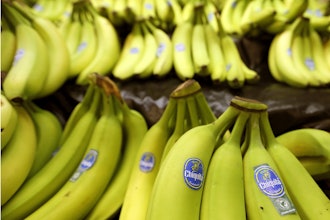Around the globe, the plastic shopping bag is under assault, blamed for harming marine life, cluttering landfills for 1,000 years, littering streets, and wasting petroleum. And the numbers are staggering: EPA data estimates that between 500 billion and a trillion plastic bags are consumed worldwide each year.
But British businessman Ken Ketteringham, a former main-board director of Vickers, sees recycling of non-biodegradable plastic as one way to help solve the energy crisis. His company, Environmental Technology Systems (ETS), has acquired the rights from its Chinese inventors to manufacture and sell a technology known as catalytic cracking, which converts unsorted, mixed waste plastics into high-grade, low-sulfur diesel and gasoline.
During the catalytic cracking process, a mixed or sorted feedstock of polyethylene, polypropylene, polystyrene, and polyvinyl chloride is shaken together in a vibrating basket, shredded, and then conveyed by a flow of air to a hopper that feeds a screw conveyor.
The feedstock does not require cleaning prior to shredding and processing. The conveyor transports the shredded plastic into a reactor where the plastic’s long chain molecules are cracked into hydrocarbon compounds, reversing the manufacturing process that produced the plastic.
Vapor from the reactor is treated in a catalyst bed that reshapes the molecules to produce a sulfur-free oil mixture, as well as light gaseous products containing methane, ethane, propane, and similar fuel gases. Slag, arising from dirt on the plastic, is removed from the cracking reactor via a double valve interlocked hopper system. No significant vapor or odor is emitted from the slag.
About 70% by weight of the original plastic, the oil mixture can be passed straight into a distillation column to be separated into diesel oil (55% by weight) and 95 octane gasoline (45% by weight). Alternatively, the undistilled oil simply can be cooled with water in a heat exchanger and used to fuel a gas turbine generator to produce electricity.
Modular ETS plants can be sized to meet local requirements for disposal of waste plastics. A typical plant can process close to 18 million lb of mixed waste plastic per year. The 6 plants in operation in China process up to 22 million tons per year.ETS has plans to build, own, and operate a production plant on the site of a UK waste management company. It will then roll-out programs for additional plants, some of which will be sold to third parties, with others owned and operated by ETS.

















